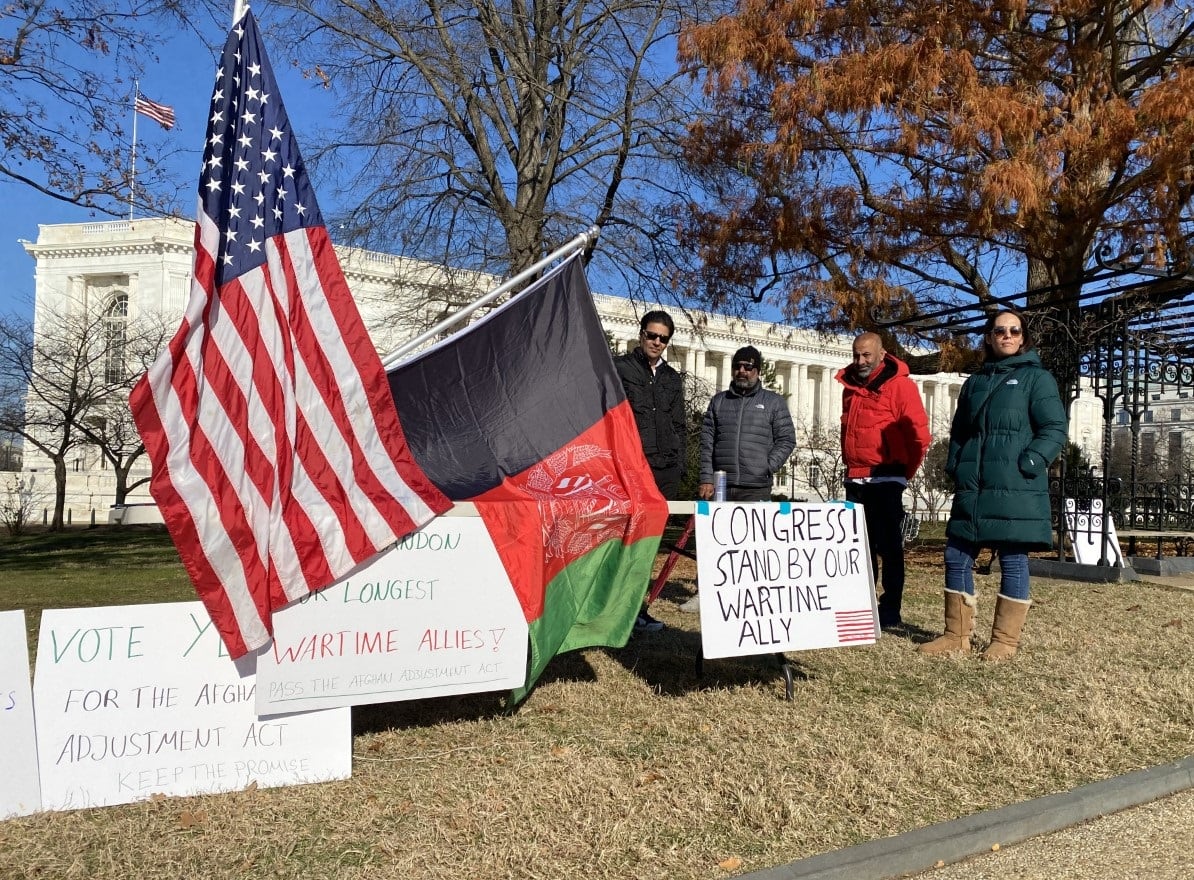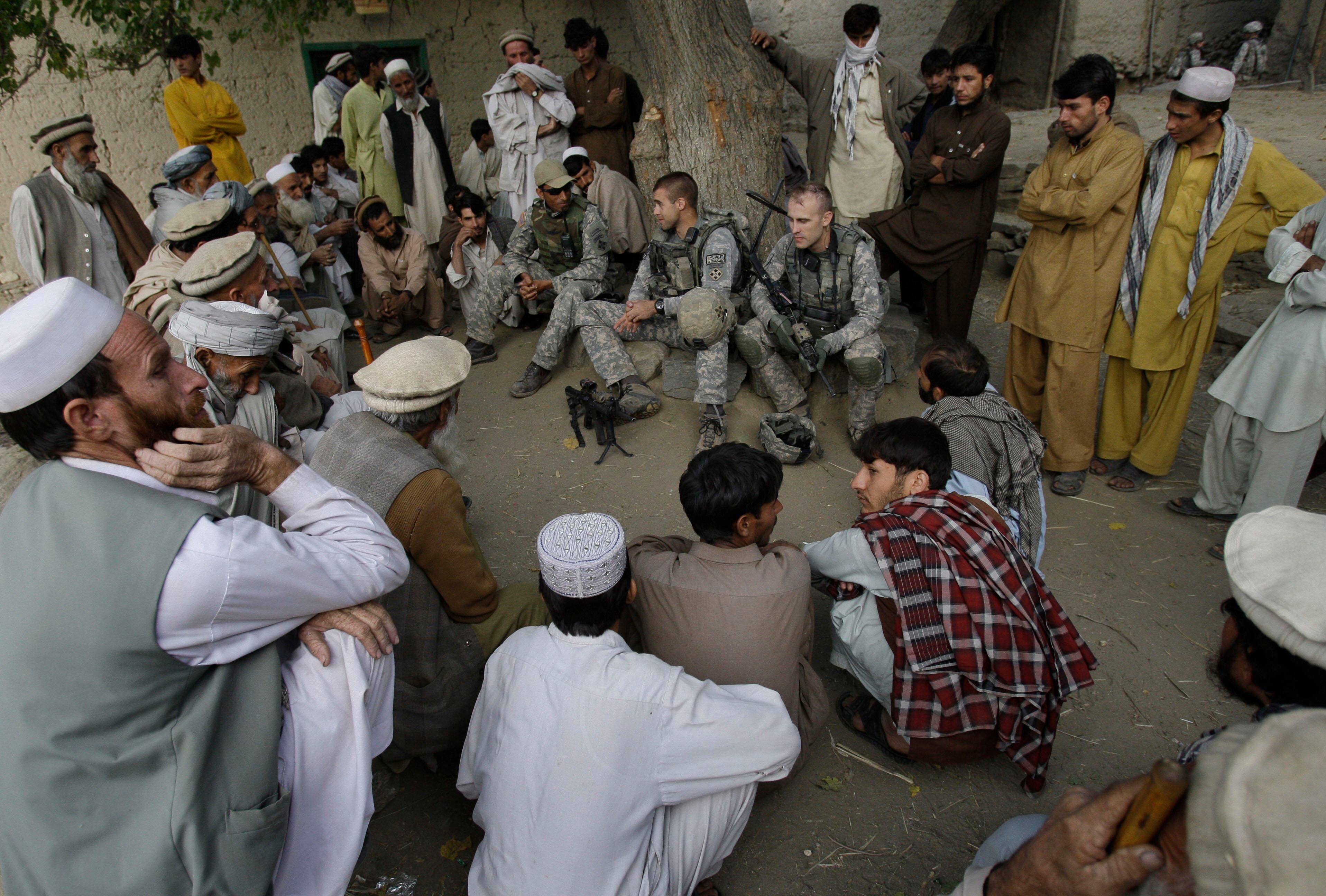As thousands of former U.S. interpreters and allies in Afghanistan await adjudication on a visa process now taking nearly two years on average to complete, nearly 250 have been reported killed by the Taliban in retribution for their service.
That’s according to new data presented to the House Foreign Affairs Committee by the veteran-led nonprofit organization No One Left Behind, which called on Congress Wednesday to break the backlog by creating new pathways to safety, push for more visa slots, and better partner with the array of all-volunteer veteran groups and coalitions created to advocate for allies in danger.
Representatives from eight such organizations testified before Foreign Affairs’ Oversight and Accountability subcommittee, painting horrifying pictures of torture and brutalism in Taliban reprisals following U.S. withdrawal in 2021.
Subcommittee chairman Brian Mast, a Florida Republican and former Army Ranger who lost both legs to an improvised explosive device while fighting in Afghanistan, had a message to the veteran witnesses and any other veterans who might have been watching: “You’re justified in your rage” about the Afghans left behind.
RELATED

“This roundtable is not group therapy to get over a war that is, to some, over,” Mast said. “The war is clearly not over for the veterans who are fighting internal battles, and for our allies who depend on us.”
Elizabeth Lynn, a veteran of the Air Force and Navy Reserves who deployed to Afghanistan in 2011 relayed accounts of targeted public executions, documented on cellphone videos in which men identified as U.S. allies were dragged through the streets, beaten to death with rocks and forced to drink acid.
“The Special Operations veteran who received these videos, and who served in Iraq and Afghanistan, describes this retaliation as the most horrific carnage he has seen in his life,” Lynn told the subcommittee. “What will this veteran tell his children when they ask him if they should follow in his footsteps and join the military?”
In an interview ahead of the hearing, Lynn told Military Times she was still in daily contact with her former interpreter, who she said received chief of mission approval for a special immigrant visa more than a year ago, but continues to await final background checks. Special immigrant visas were created as a special, fast-track visa category for interpreters and U.S. military augments in Iraq and Afghanistan, but have nonetheless been bogged down with bureaucratic process and quota limitations.
Of the 7,000 visa applications ― including special immigrant visas and other available pathways ― that Lynn said she’s tracking from former Afghan allies through her organization Operation Recovery, only 1% have been approved.
Thomas Kasza, a Green Beret and National Guardsman who worked in Afghanistan with the elite local partners who made up the Defense Department-contracted National Mine Reduction Group, said he was aware of six men who fought alongside the Green Berets against the Taliban and have been killed while awaiting a way out of Afghanistan. Kasza said he’d trusted these team members implicitly and recalled in particular an incident in which National Mine Reduction Group members had faced down Taliban fighters inside a dark subterranean tunnel.
“These guys undertook some tasks, which as an American would have been Silver Star, Medal of Honor, that kind of stuff,” Kasza told Military Times in an interview. “They just don’t get recognized for what they really did.”
Accounts like Lynn’s and Kasza’s, lawmakers said, refuted testimony from acting Under Secretary of State Victoria Nuland in October 2023 that officials hadn’t “seen a consistent pattern of those Afghans who worked and supported our efforts in Afghanistan being murdered by the Taliban.”
Andrew Sullivan, advocacy director at No One Left Behind, brought sobering statistics: When the organization surveyed 13,600 Afghans in December 2022 about their knowledge of reprisal killings among special immigrant visa candidates, it received 242 accounts. In one case he described, an interpreter who had successfully completed his visa interview in the Kabul embassy and was only waiting to pick it up was shot in front of his two children while shopping.
The single piece of legislation passed since August 2021, which authorized an additional 4,000 special immigration visas, did little, Sullivan said, to offset these Afghans’ feelings of abandonment.
Committee members, many of whom were military veterans who’d served in Afghanistan also addressed the high personal cost to the veterans in the room of their commitment to the cause of helping those left behind. Kasza told Military Times he’d taken his preliminary exam and been set to enroll in medical school when Kabul fell; he put those ambitions aside to found his organization, the 1208 foundation.
Rep. Michael Waltz, a Florida Republican and Green Beret who serves in the Army National Guard, recounted a story he’d heard about a veteran who exhausted his children’s education savings accounts and lost his marriage because he’d given so much to Afghans seeking help.
“But,” Waltz said, “He can’t not answer the phone.”
In addition to passage of the Afghan Adjustment Act, the widely supported legislation that would, among other things, expand special immigrant visa eligibility to more Afghans who helped Americans and require the Department of State to respond to congressional inquiries on special immigrant visa applications, the panelists advocated for greater transparency in the current processing system and changes, including perhaps more priority categories, which would allow applicants whose lives are at risk to flow through more quickly.
Panelists, including Amy Marden of the Moral Compass Federation, which helped to organize the event, urged the lawmakers to look for opportunities to lean on the expertise of organizations like theirs to assist in relocation and support of Afghani allies in some form of public-private partnership.
Kasza said the same was true for special immigrant visa vetting, where often, he said, endorsements from special operators who’d worked closely with the applicants for years seemed to be ignored.
“We can streamline this process,” he said, “If they actually listen to us and look at our bona fides.”
Hope Hodge Seck is an award-winning investigative and enterprise reporter covering the U.S. military and national defense. The former managing editor of Military.com, her work has also appeared in the Washington Post, Politico Magazine, USA Today and Popular Mechanics.




